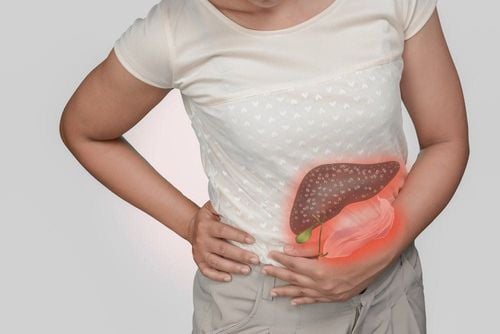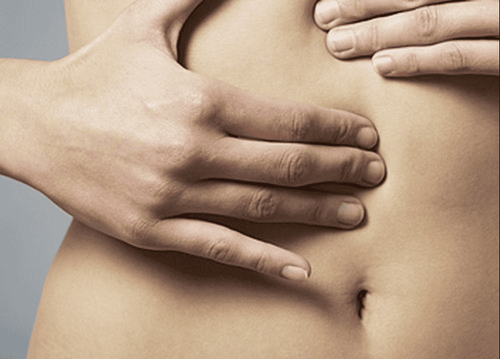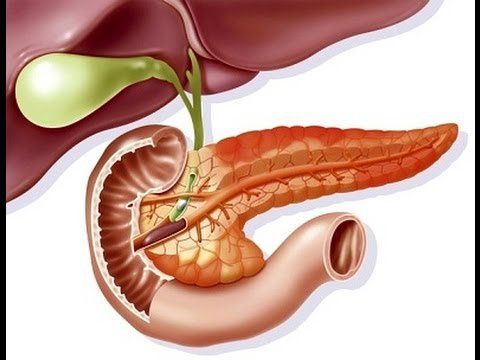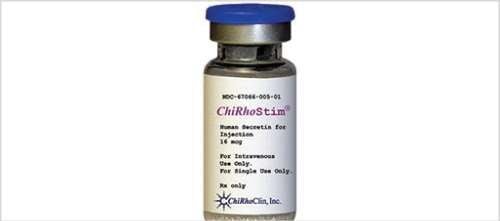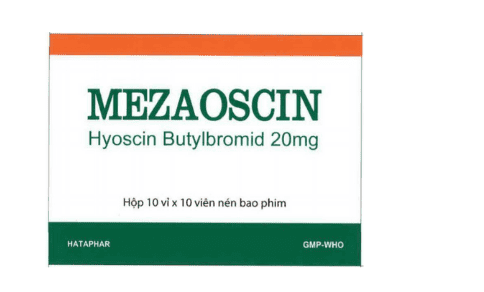This is an automatically translated article.
The article was professionally consulted by Specialist Doctor I Vo Thi Thuy Trang - Gastroenterologist, Department of Medical Examination & Internal Medicine - Vinmec Danang International Hospital. The doctor has many years of experience in the field of gastrointestinal endoscopy.The pancreas is an important organ, secreting enzymes necessary for digestion. The presence of pancreatic stones not only obstructs the secretory ducts of enzymes but also causes pancreatitis. This is a dangerous complication that can cause multi-organ failure or sometimes life-threatening if not detected early and intervened promptly.
1. What are pancreatic stones?
Pancreatic stones form and grow from calcium molecules deposited in the pancreas. As pancreatic stones grow in size, they can block the secretory flow of digestive enzymes from the pancreas to the small intestine, causing stasis and causing pancreatitis. Pancreatic stones are a major cause in people with chronic pancreatitis, an inflammatory condition often associated with long-term excessive alcohol consumption. In addition, 20 to 30% of patients with chronic pancreatitis due to causes other than pancreatic stones will also develop small pancreatic stones. When pancreatic stones block the pancreatic duct, the pancreas is unable to release digestive enzymes into the small intestine, causing an acute flare of pancreatitis.Furthermore, pancreatic function in these situations will also decline; The pancreas is no longer able to secrete the hormones that regulate blood sugar, so people with chronic pancreatitis also develop secondary diabetes.
2. Are pancreatic stones dangerous?
If pancreatic stones are very small, they can remain in place silently without causing any symptoms. In contrast, when pancreatic stones increase in size, especially when there is the impact of chronic inflammatory factors in acute inflammatory episodes, pancreatic stones will block the pancreatic duct, causing acute pancreatitis. This vicious cycle of pathology will cause the patient to have chronic pancreatitis and also have acute inflammatory episodes.It is this prolonged condition that will reduce the function of the pancreas, the patient is less able to absorb nutrients, becomes depleted or can be life-threatening if complications of multi-organ failure, circulatory collapse complete in episodes of acute pancreatitis.
When the pancreas occurs inflammatory reactions will cause pancreatitis. The clinical presentation of pancreatitis can occur as acute pancreatitis - which comes on suddenly and lasts for a few days - or chronic pancreatitis - which occurs over many years. Depending on the individual and the degree of inflammation, mild cases of pancreatitis may go away without treatment while severe cases can cause life-threatening complications.
3. What are the symptoms of pancreatitis?
Signs and symptoms of pancreatitis can vary, depending on acute or chronic pancreatitis and the type of inflammation and the amount of parenchyma affected.Manifestations of acute pancreatitis include:
Abdominal pain above the navel Abdominal pain spreading to the back Abdominal pain that worsens after eating Fever Rapid pulse Nausea Vomiting Resistance to the abdominal wall Manifestations of chronic pancreatitis include:
Abdominal pain above the navel Persistent dull pain Weight loss, slimming Fat stools.

4. What are the possible complications of pancreatic stones?
Pancreatic stones themselves, if small in size, are completely benign and do not affect health. Conversely, when pancreatic stones cause pancreatitis, they become dangerous because pancreatitis can cause serious complications as follows:Pancreatic pseudocyst. Acute pancreatitis can cause pancreatic juice and damaged pancreatic parenchyma to accumulate in a cystic sac in the remaining pancreas. A large pancreatic pseudocyst, if ruptured, can cause serious complications such as massive intra-abdominal bleeding and peritonitis. Infection. Acute pancreatitis can cause the pancreas to lose its defenses and become more susceptible to bacterial invasion and infection. Pancreatic infection is a serious inflammatory disease and requires emergency treatment, including surgery to remove infected tissue early, localize the inflammation, and clear the abdominal cavity. CKD . Acute pancreatitis can cause kidney failure. Although dialysis can be treated if kidney failure is severe and can improve, if not treated promptly, the patient's condition can also be critical. Respiratory failure. Acute pancreatitis can cause chemical changes in the body that affect lung function, causing the level of oxygen in the blood to drop to dangerously low levels. Secondary diabetes. Damage to the insulin-producing cells in your pancreas from chronic pancreatitis can lead to diabetes mellitus due to the inability to secrete insulin. As a result, the concentration of sugar in the body will be very high. Malnutrition. Both acute and chronic pancreatitis can cause the pancreas to reduce production of enzymes needed to metabolize and absorb nutrients from food. This can lead to malnutrition, diarrhea, and weight loss even though the person is actively consuming some amount of food. Pancreatic cancer. The long-standing inflammatory response in the pancreas caused by chronic pancreatitis is a risk factor for developing pancreatic cancer.
5. How to treat pancreatic stones like?
Current views all support the school of limiting the active intervention of pancreatic stones when it does not cause complications. Pancreatic stones cause acute pancreatitis complications in a low proportion, while a fair number of patients have small-sized pancreatic stones in the pancreas that do not cause any problems.Thus, when pancreatic stones cause pancreatitis, the patient will be hospitalized and intervened with some initial treatment methods such as:
Fasting. You will need to stop eating for a few days in the hospital to give your pancreas a chance to recover. Only when the inflammation in the pancreas is under control can you start drinking sugar water and eating porridge, thin soup. You can then gradually return to your normal diet. Analgesic. Pancreatitis can cause very intense pain. Your doctor will prescribe strong medications to help control the pain. Antibiotic. Because the inflamed pancreatic parenchyma is very susceptible to infection by intra-abdominal bacteria, antibiotic therapy is both preventive and aimed at treating peritonitis from pancreatitis.
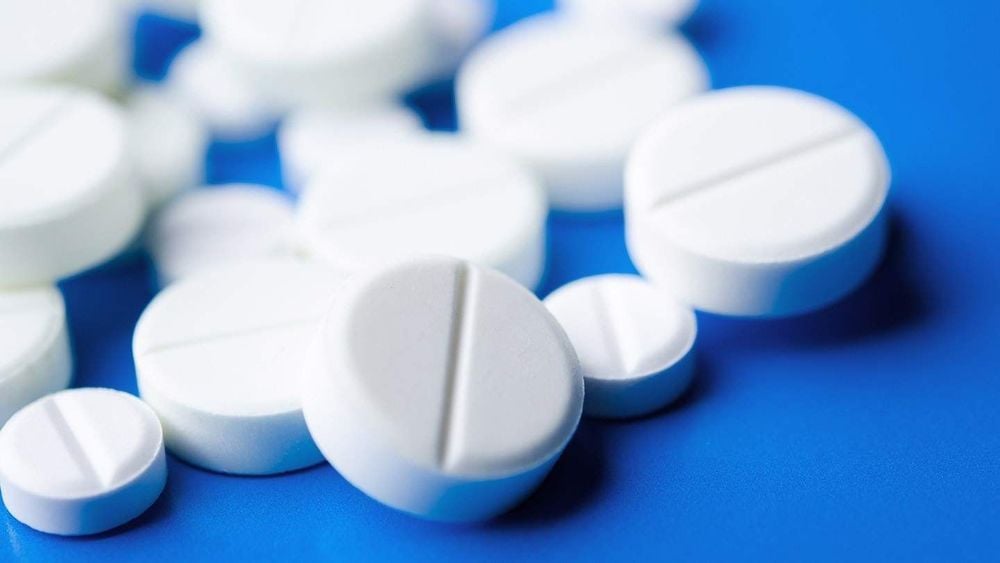
Among them, the method of removing pancreatic stones by retrograde endoscopic procedure is the most widely applied today. This is a minimally invasive outpatient procedure and patients can go home the same day. Called a “retrograde endoscopy” because the doctor will use a device called an endoscope – a long, flexible, camera-illuminated tube – passed through the mouth, down the throat, and through the stomach to see pancreas, gallbladder and bile duct.
Small pancreatic stones can be removed with this method, large pancreatic stones may be more difficult. However, with today's medical advances, endoscopic retrograde cholangiopancreatography combined with external shock waves is also applied to break large pancreatic stones into smaller pieces suitable for easy use. easy to take out.
Besides, for cases of chronic pancreatitis, the patient should be treated for alcohol withdrawal. Drinking multiple alcoholic beverages every day for many years can cause pancreatic stone formation and chronic pancreatitis.
Moreover, the nutritional status of this group is also very poor, the use of synthetic pancreatic enzyme tablets to improve digestibility is necessary. Enzyme supplements taken with each meal can help your body better metabolize and absorb the nutrients in the food you eat.
6. Lifestyle and measures to prevent pancreatic stones like?
When you are discharged from the hospital, you need to take the following tips to continue your recovery from pancreatitis and prevent recurrence of pancreatic stones and the occurrence of pancreatic stones in people who have not had the disease.Stop drinking. If you can't stop drinking on your own, ask your doctor about participating in alcohol cessation programs. Quit smoking. If you smoke, quit. If you don't smoke, don't start. If you can't quit on your own, ask your doctor for help with quitting. Choose a low-fat diet. Limit foods high in fat, choose unsaturated fats and preferably consume plenty of fresh fruits and vegetables, whole grains and lean protein for your daily meals. Drink more water. Gallstone pancreatitis can be caused by dehydration. So, make it a habit to drink plenty of water throughout the day, which not only helps the pancreas but also other organs have a more efficient working environment. Exercise regularly and lose excess weight. People who are overweight or obese are more likely to develop pancreatic stones as well as gallstones, leading to a higher risk of acute pancreatitis.

Please dial HOTLINE for more information or register for an appointment HERE. Download MyVinmec app to make appointments faster and to manage your bookings easily.
References: ncbi.nlm.nih.gov, pancreasfoundation.org, drweil.com, cedars-sinai.org, sciencedirect.com




